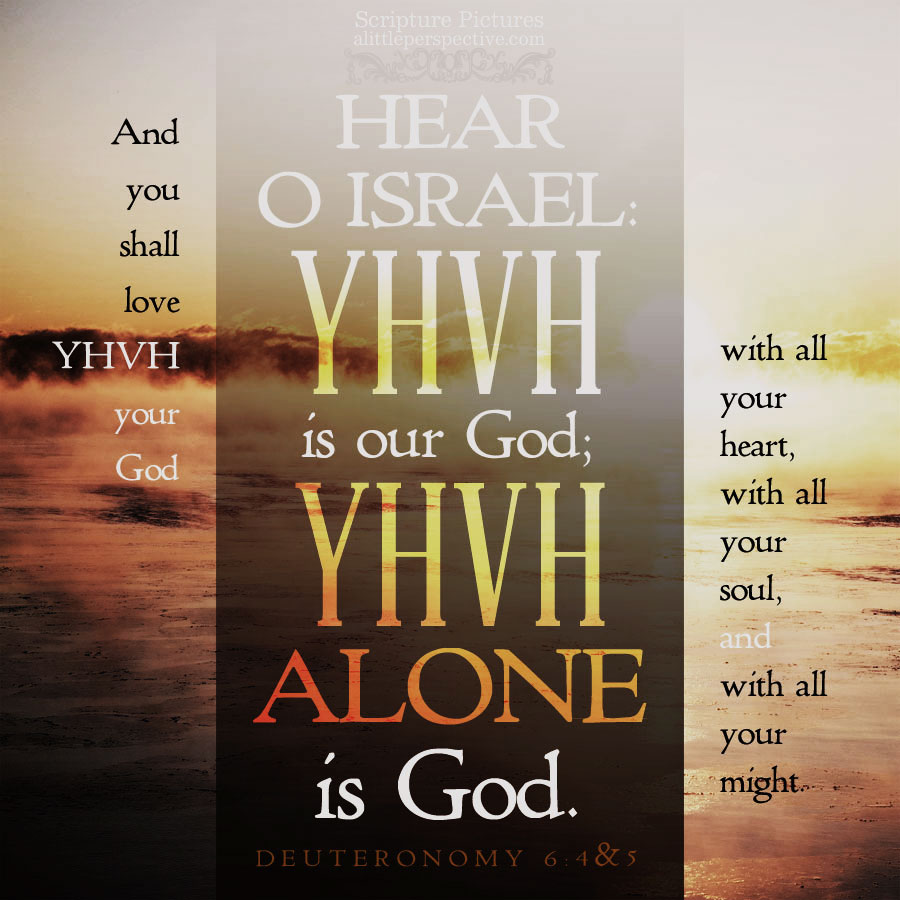
I am taking a short break from my chapter by chapter progression through the New Testament to address a theological issue that seems to come up frequently in my Hebraic circle. And that is, the deity of Messiah.
Let me first try to present the issue of contention that creates the greatest theological thorn for people. (I hope I present this fairly and accurately, and if not, I am sure someone will be kind enough to let me know.)
Deu 6:4, the Shema, is the great creed of the one Hebraic and biblical faith (Eph 4:5):
Hear, O Israel: The Lord our God, the Lord is one! NKJV, NIV, Hebrew Bible in English
Hear, O Israel: The Lord our God is one Lord. KJV
“One” is in Hebrew, Strong’s H259, echad, the numeral one; as an adjective also with the meaning of each, every, only, once, alone, and variations thereof. An alternate perfectly acceptable translation of the Hebrew of this verse is, “Hear, O Israel: YHVH is God, YHVH alone is God.”
The message of the Scripture is clear: in contrast to the polytheistic paganism which was the dominant religion of the ancient world, stood first Abraham and from him, Israel, proclaiming monotheism: that there was in fact only one God, the Creator of heaven and earth, whose personal name Yehovah (יהוה or YHVH) means, I AM THE ETERNAL AND SELF- EXISTANT ONE. The gods of polytheism are false gods, and to afford them fear or worship is to engage in idolatry.
The objection then, is that Christianity elevated two other beings to the status of deity, by proclaiming God the Father, God the Son, and God the Holy Spirit. The objection to trinitarianism is that three “gods” violates the Shema, Scripture’s clear and foundational proclamation of the unity or singleness, uniqueness, of YHVH Creator of heaven and earth.
Scripture, as the true and infallible word of YHVH, cannot be contradicted by itself and remain true. If we do not have an interpretation of one part of Scripture which remains internally consistent and harmonic with the other parts of Scripture, then we have not yet arrived at the “true” interpretation.
the deity of messiah, part two
the deity of messiah, part three
the deity of messiah, part four
the deity of messiah, part five
















Leave a Reply